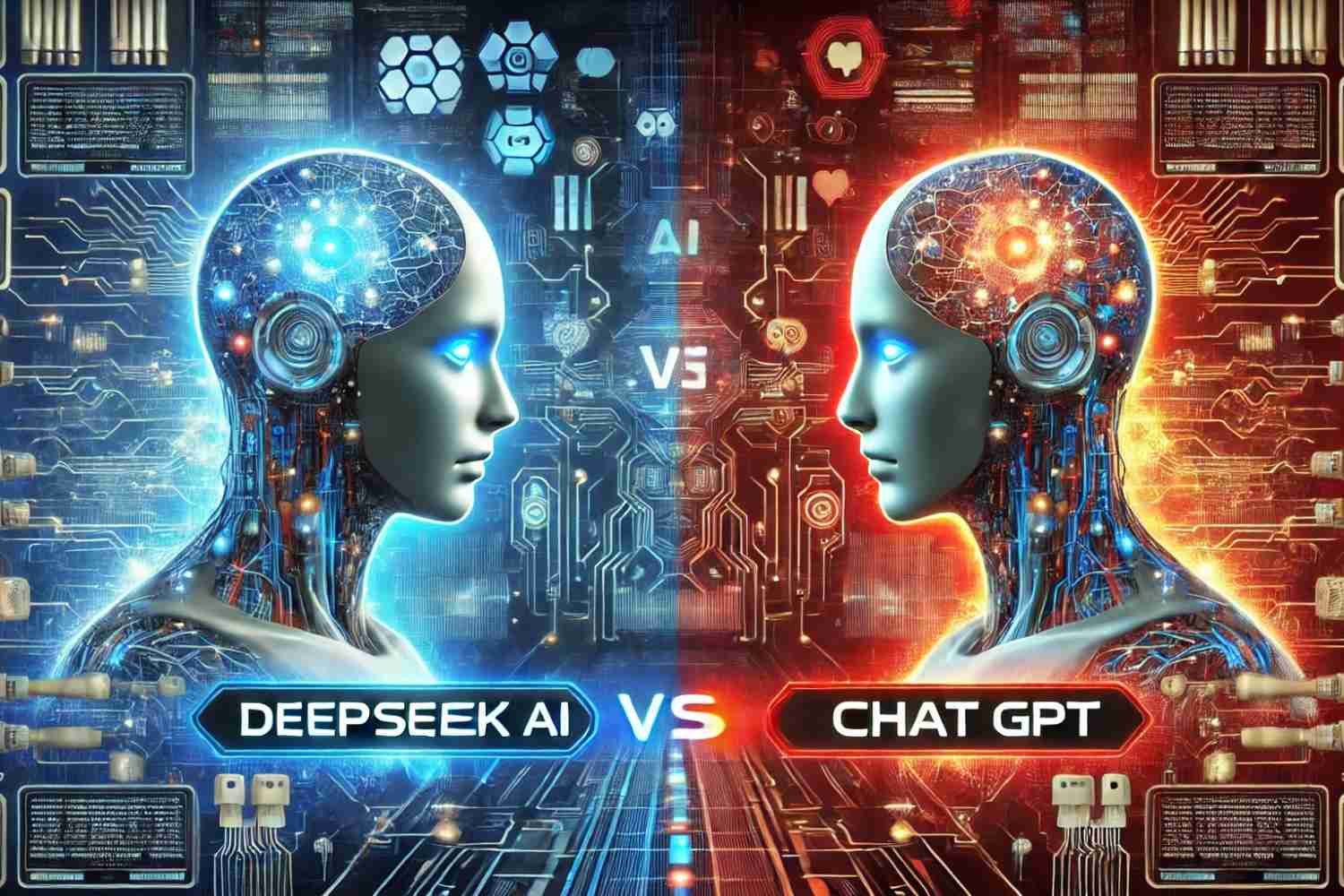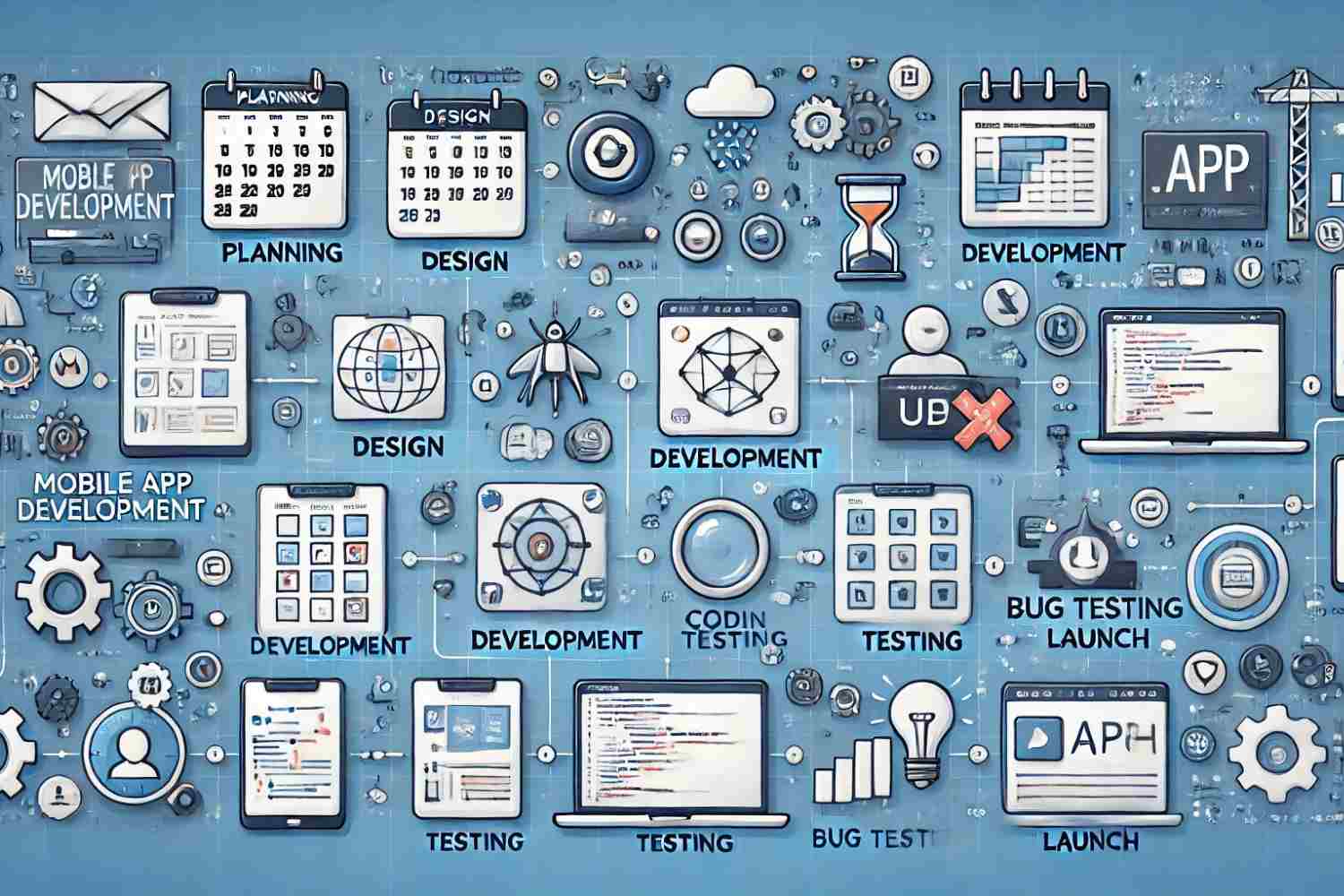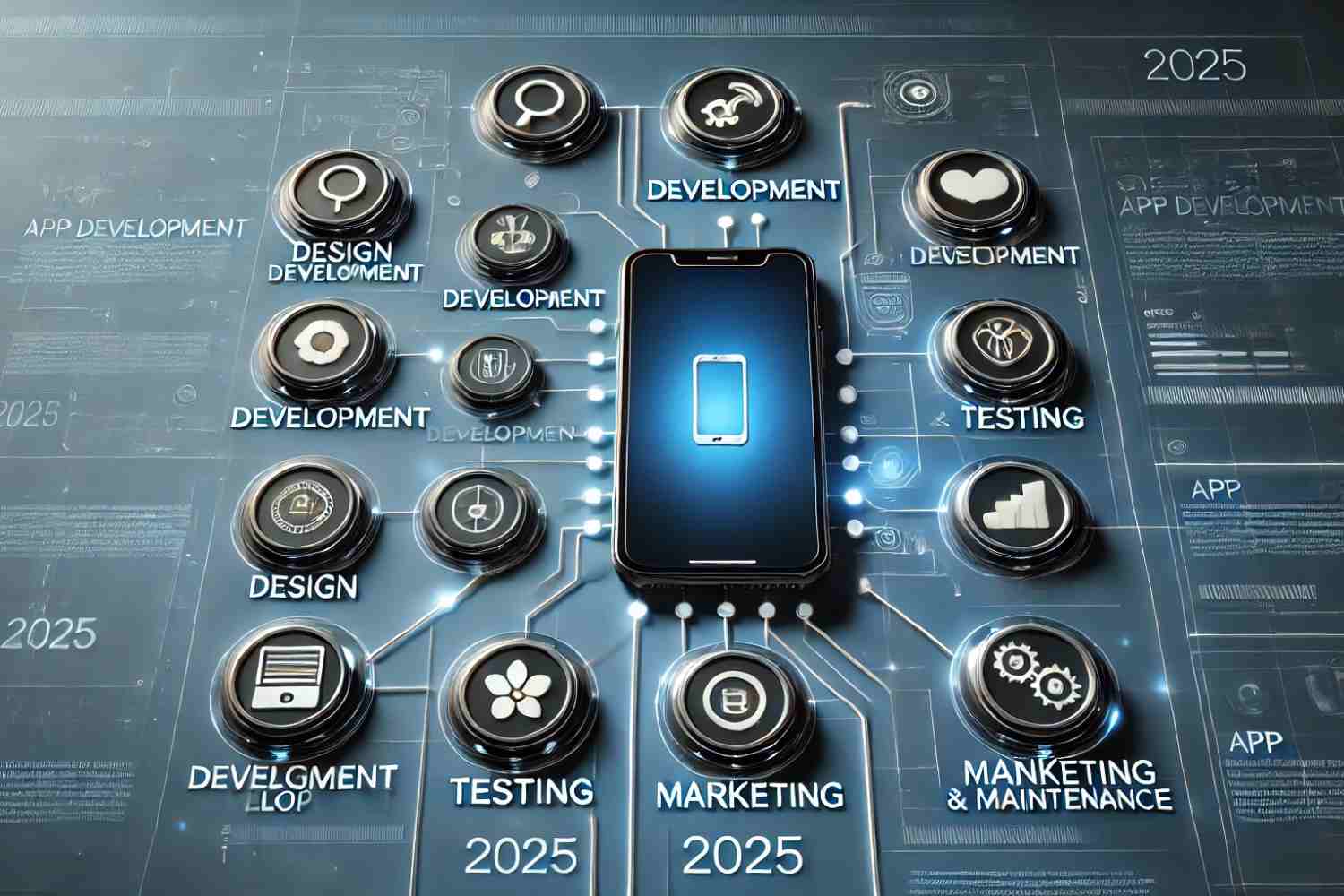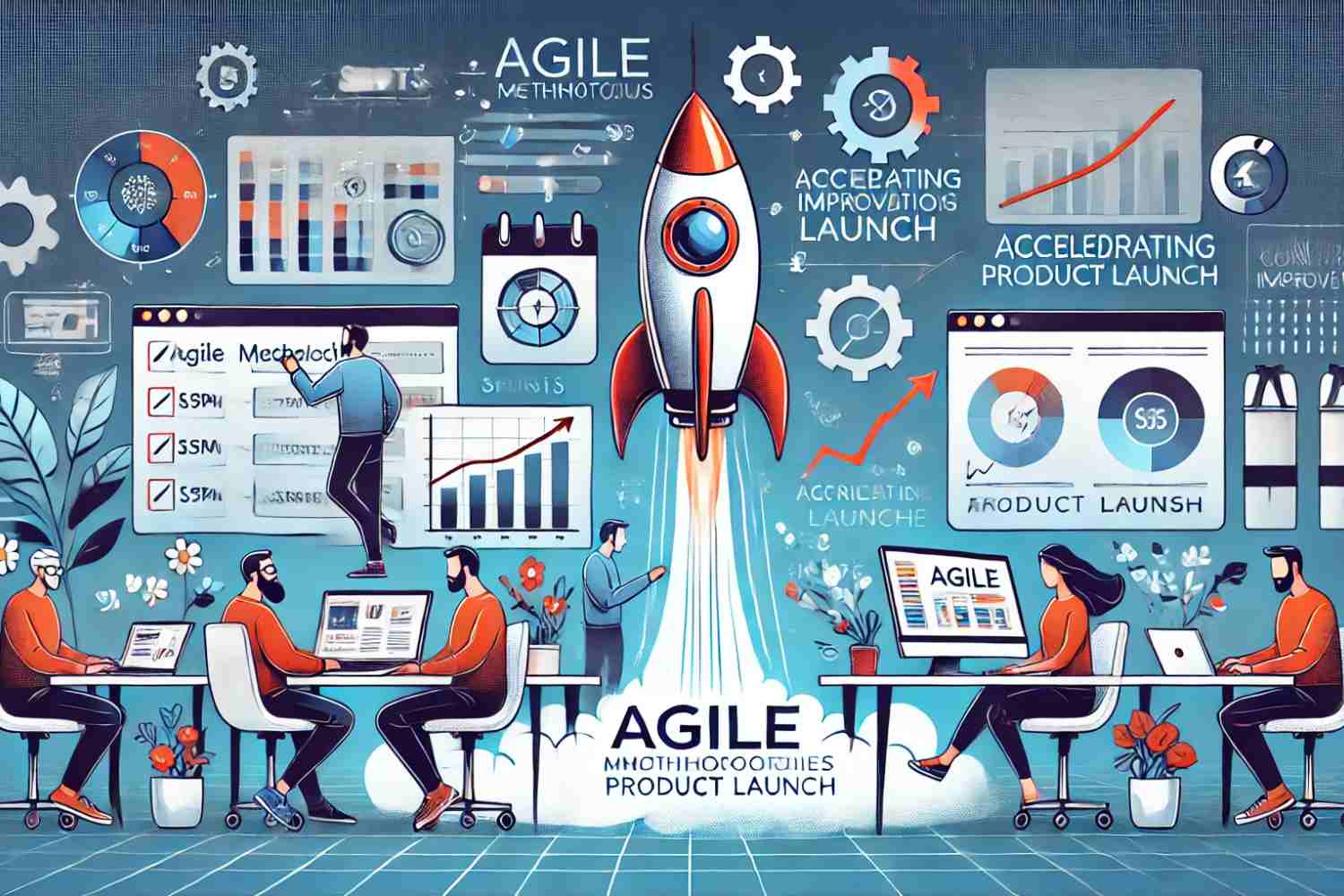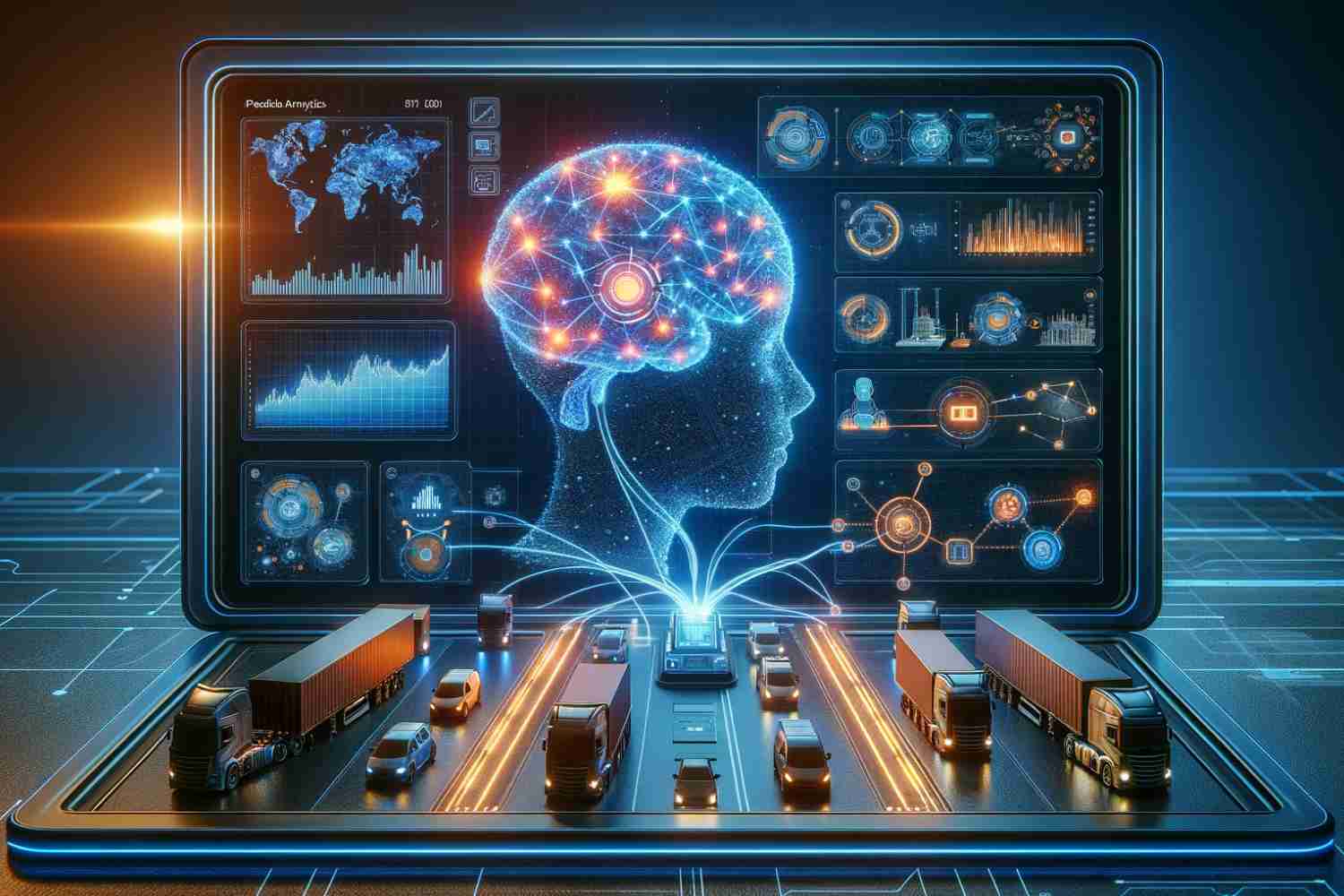In the ever-evolving world of Artificial Intelligence (AI), two of the most talked-about platforms today are DEEPSEEK AI and ChatGPT. Both are powerful AI tools that showcase the tremendous potential of AI, but each takes a different approach to solving user needs. While DEEPSEEK AI has been gaining traction with its data-driven insights and advanced functionalities, ChatGPT has emerged as a leader in natural language processing (NLP), offering users an intuitive conversational experience.
In this blog post, we’ll dive into the features, differences, strengths, and weaknesses of DEEPSEEK AI and ChatGPT, exploring how they shape the future of AI technology and which platform might be better suited for different user needs.
What is DEEPSEEK AI?
DEEPSEEK AI is an innovative AI-driven platform designed to provide actionable insights by analyzing vast amounts of data. It excels at extracting information from multiple sources, processing large datasets, and providing intelligence in the form of reports, summaries, and predictions. DEEPSEEK AI is primarily geared toward professionals and enterprises that need to make data-driven decisions, and its technology is often used in fields like finance, healthcare, marketing, and more.
Key Features of DEEPSEEK AI:
- Data Aggregation and Analysis: DEEPSEEK AI can aggregate and process a vast amount of information from multiple sources, including structured and unstructured data, ensuring that users get a complete picture of the information landscape.
- Advanced Predictive Analytics: Using machine learning algorithms, DEEPSEEK AI can predict future trends and behaviors based on historical data, helping businesses prepare for upcoming changes in their industries.
- Visual Data Representation: The platform provides sophisticated visualization tools that allow users to present data in easy-to-understand charts, graphs, and heatmaps. This visual approach aids in quicker decision-making.
- Real-Time Monitoring: DEEPSEEK AI continuously monitors data sources and provides real-time updates, making it particularly useful in fast-paced industries like finance, where time-sensitive decisions are critical.
- Customizable Reports: Users can customize reports and dashboards to reflect the specific metrics that are most relevant to their business goals.
What is ChatGPT?
ChatGPT, developed by OpenAI, is a conversational AI model built to understand and generate human-like text. It’s part of the GPT (Generative Pretrained Transformer) family of models and has gained widespread recognition for its ability to engage in coherent, natural-sounding conversations with users. ChatGPT can answer questions, generate creative writing, assist with coding, and even hold casual chats, making it incredibly versatile.
Key Features of ChatGPT:
- Natural Language Understanding: ChatGPT excels in understanding the context and nuance of human language. It can comprehend and respond to a wide range of topics, from everyday conversations to more technical queries.
- Versatility in Use Cases: Whether you need help drafting an email, solving a math problem, brainstorming ideas, or simply chatting about a topic of interest, ChatGPT can handle it all. Its adaptability is one of its biggest selling points.
- Engaging Conversations: Unlike traditional search engines or chatbots, ChatGPT can engage in longer, context-aware conversations. This allows users to build a more fluid interaction, making the experience feel more human-like.
- Multilingual Capabilities: ChatGPT has been trained to understand and respond in multiple languages, which makes it a go-to tool for users around the world.
- OpenAI’s API Integration: Developers can integrate ChatGPT into various applications using OpenAI’s API, allowing for the creation of custom AI-powered tools and experiences.
Comparing DEEPSEEK AI and ChatGPT
1. Purpose and Focus
The fundamental difference between DEEPSEEK AI and ChatGPT lies in their purpose and focus.
- DEEPSEEK AI is designed primarily for data analysis and decision support. It targets users who need to dive deep into data sets, extract key insights, and make informed decisions based on complex data. The tool excels in providing a comprehensive view of data and creating predictive models that businesses can leverage for strategic planning.
- ChatGPT, on the other hand, is focused on conversational AI. It is built to engage users through natural language dialogue and can handle a wide variety of tasks, from answering questions to creative writing and technical assistance. While ChatGPT is powerful in its ability to understand and generate text, its focus is more on human interaction than on heavy data analysis.
2. User Experience
- DEEPSEEK AI is more of a business intelligence tool. While its interface may be designed to be user-friendly, it requires a certain level of technical proficiency to fully leverage its capabilities. The platform’s focus on data visualization and reporting makes it ideal for users who are familiar with data analysis and want to make data-driven decisions.
- ChatGPT is extremely user-friendly and designed for anyone to use, regardless of technical background. The conversational interface is intuitive, and users simply type their queries or prompts, expecting responses in natural language. Whether you’re a student, developer, business professional, or creative, ChatGPT adapts to the tone and style of the conversation.
3. Functionality
- DEEPSEEK AI is highly focused on data aggregation, predictive analytics, and actionable insights. Its ability to monitor real-time data and provide deep insights makes it perfect for industries that require constant analysis of changing datasets. DEEPSEEK AI's strength lies in processing large amounts of data and delivering insights that would otherwise take a human weeks or even months to gather.
- ChatGPT excels in natural language processing and human-like conversations. It doesn’t focus on data aggregation or analytics but rather on creating an interactive experience that feels personal and tailored. ChatGPT’s versatility extends to generating content, answering questions, and assisting with a wide array of tasks. However, when it comes to structured data analysis, it lacks the depth that DEEPSEEK AI offers.
4. Target Audience
- DEEPSEEK AI is best suited for business professionals, data scientists, analysts, and organizations that need to analyze large datasets and gain insights for strategic planning, forecasting, and decision-making. It serves industries like finance, healthcare, marketing, and more.
- ChatGPT, however, is designed for a broader range of users, including students, professionals, developers, creatives, and casual users. It can be integrated into a variety of contexts, whether for work, education, entertainment, or casual conversation.
5. Data Privacy and Security
- DEEPSEEK AI likely has more stringent measures for data privacy, especially since it deals with sensitive business data. Enterprises that use DEEPSEEK AI expect strong encryption, access controls, and compliance with industry standards like GDPR to ensure that their data remains secure.
- ChatGPT, although it adheres to OpenAI’s privacy guidelines, may not be as tailored to meet the strict privacy and data security requirements that businesses often demand. Since ChatGPT processes user input and can sometimes store data to improve its performance, privacy concerns may arise for enterprises handling sensitive information.
Strengths of DEEPSEEK AI and ChatGPT
Strengths of DEEPSEEK AI:
- Advanced Data Analytics: DEEPSEEK AI’s robust analytics tools provide businesses with deep insights that would be impossible to gather manually.
- Real-Time Monitoring: The ability to monitor and analyze data in real-time makes it an indispensable tool for industries that require up-to-date information.
- Scalability: The platform can handle large-scale data, making it ideal for large enterprises.
Strengths of ChatGPT:
- Ease of Use: The conversational interface makes it accessible to anyone with an internet connection, regardless of technical knowledge.
- Creativity and Versatility: ChatGPT is versatile and can assist with everything from technical tasks to creative endeavors, such as writing poetry or generating business ideas.
- Adaptability: It can be integrated into various platforms and applications, enhancing user experience across multiple domains.
Weaknesses of DEEPSEEK AI and ChatGPT
Weaknesses of DEEPSEEK AI:
- Complexity: The platform may require specialized knowledge to fully harness its capabilities, making it less accessible to non-experts.
- High Costs: As a specialized tool aimed at businesses, DEEPSEEK AI can be expensive for smaller companies or individual users.
Weaknesses of ChatGPT:
- Limited Data Analysis Capabilities: While ChatGPT is excellent at processing and generating text, it doesn’t offer the same depth of data analysis or visualization that DEEPSEEK AI does.
- Accuracy Concerns: ChatGPT is not always reliable for highly technical or specialized topics. It can sometimes provide inaccurate or incomplete information, especially in complex fields.
Conclusion
DEEPSEEK AI and ChatGPT are both remarkable AI tools, but they cater to different audiences and use cases. DEEPSEEK AI excels in data-driven decision-making and business intelligence, making it a powerful choice for professionals who need to make sense of large datasets. On the other hand, ChatGPT stands out as a versatile conversational AI that can assist with a wide range of tasks, from casual chatting to professional support.
When choosing between DEEPSEEK AI and ChatGPT, users should consider their specific needs. If you need to perform advanced data analysis and predictive modeling, DEEPSEEK AI is the clear choice. But if you're looking for an AI that can help you with everyday tasks, creative work, or engaging conversations, ChatGPT is the way to go. Ultimately, both platforms demonstrate the tremendous potential of AI and represent a glimpse into the future of human-AI interaction.
FAQs
DEEPSEEK AI is a powerful data analytics platform designed to process and analyze large datasets to provide actionable insights. It leverages machine learning algorithms to detect patterns, predict future trends, and help businesses make data-driven decisions. DEEPSEEK AI aggregates information from various sources, offering features like predictive analytics, real-time data monitoring, and customizable reports to assist enterprises in multiple sectors, including finance, healthcare, and marketing.
The primary difference between ChatGPT and DEEPSEEK AI is their focus. DEEPSEEK AI specializes in data analysis and predictive insights, making it ideal for users needing in-depth data visualization, reports, and strategic forecasts. On the other hand, ChatGPT is a conversational AI designed for natural language processing, assisting users with tasks like answering questions, generating content, and engaging in interactive discussions. While DEEPSEEK AI is data-centric, ChatGPT focuses on providing an intuitive, human-like conversational experience.
For businesses that need to analyze large datasets and gain actionable insights, DEEPSEEK AI is the better choice. Its strength lies in aggregating and processing complex data from multiple sources, offering predictive analytics, and providing real-time reports. It’s specifically designed for professionals and enterprises that need to make data-driven decisions and predictions based on historical and real-time information.
Yes, ChatGPT is an excellent tool for professional tasks like report writing, content creation, and brainstorming ideas. Its ability to understand context and generate human-like text makes it highly versatile. Whether you're drafting emails, writing articles, or even generating business strategies, ChatGPT can help you with these tasks. However, for highly technical, data-heavy reports, DEEPSEEK AI may be more suitable due to its specialized analytics capabilities.
Yes, DEEPSEEK AI tends to be more suited to technical users, such as data scientists, analysts, and business professionals who require expertise in data analytics and data-driven decision-making. Its interface and features might require a more technical understanding of data science. ChatGPT, in contrast, is designed to be user-friendly and accessible to a wider range of users, from students and casual users to professionals, without needing deep technical knowledge.
